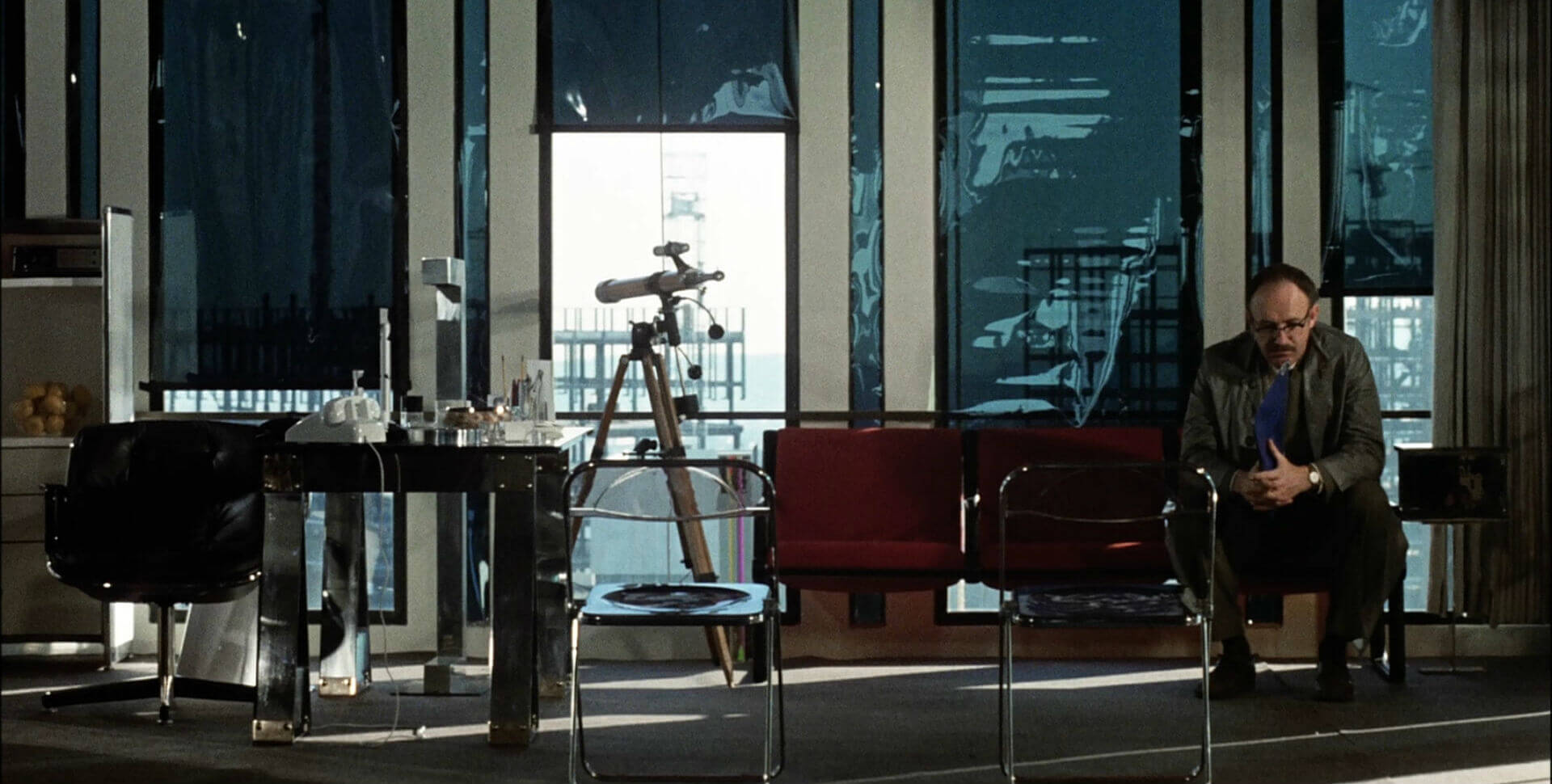The Conversation [1974] is a film directed by the legendary Francis Ford Coppola. The film follows Harry Caul (Gene Hackman), a surveillance expert for hire on his latest assignment. Coppola’s film is told at a time of Watergate and the Vietnam War; a time when America itself was struggling with similar issues of morality to those presented in the film. Unfortunately, The Conversation has been somewhat forgotten, lost in the shadow of its bigger sibling; another of Coppola’s masterpieces, The Godfather: Part II.
Cutting and Mixing. The film’s greatest asset is in its extraordinary editing. There are moments in this film in which the cutting style is closer in relation to that of the Russian montage technique than continuity. The dynamic editing plays a huge role in Coppola’s control of tone throughout the film. The scenes in which Caul obsessively replays the tapes were inspired by Antonioni’s Blow-Up; in which the photographer Thomas studies his photographs for similar answers. The mastery of sound within this picture (largely due to Walter Murch’s re-recording and sound montage) paved the way for a number of films that followed it, including classics like DePalma’s Blow-out (also inspired by Blow-Up).
They’re watching us. The cinematography is thoughtful and calculated. Right from the opening shot of the film, Coppola is establishing an atmosphere of voyeurism through shot composition and telephoto zoom lenses. The film’s aesthetic can flip from a gritty realism to dreamy surrealism on a dime. This is how Coppola takes advantage of the narrative perspective of Harry Caul; sometimes it is clearly a biased imagination, sometimes it is an objective reality, and sometimes the line between reality and Caul’s mind is blurred. This surreal state (similar to Italian neo-realism) is often when we learn the most about the character and the film’s thematic relevance.
Hackman’s a softy? Gene Hackman plays a softer role than usual as Harry Caul, a paranoid surveillance expert. Hackman, surprisingly, is really good at exhibiting a vulnerability that is both empathetic and yet slightly disturbing. Caul is a tragically sympathetic character. He is a man who has perfected his skills in his chosen profession at the expense of a normal life. Caul’s obsession with his recording is because he does not want to believe in the concrete evidence it provides, he wants a relief of his conscience. That is his inherent tragedy; he is a man who wants to believe he is a professional; that he is not accountable for what clients do with the information he provides, yet he cannot help feeling responsible. His guilt still haunts him.
A criminally under appreciated masterpiece.
A must see for any fan of Coppola’s other works.

Related: Looking for movies of equal caliber?
Click here to see which movies received a Perfect Score from Borrowing Tape
